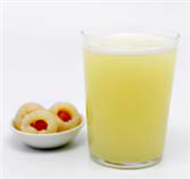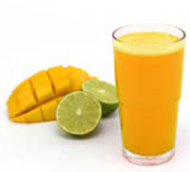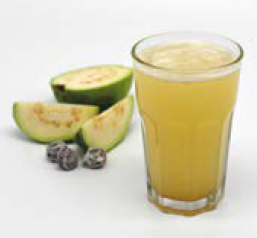Nutrition and Medical Products
Sports Nutrition

Optimal nutrition is important for physically active people, whether competing at an elite level or exercising on a routine basis. There is growing interest in the potential use of fluid milk and whey protein for athletes and active individuals wishing to improve their training diet and/or their recovery after exercise.
In recent years, considerable research has focused on protein's role in maintaining or increasing skeletal muscle mass and improving body composition (increasing skeletal muscle and decreasing body fat). This is particularly important for physically active people to maximize physical performance. Both resistance exercise (e.g., weight training, using weight machines and resistance band workouts) and an adequate intake of dietary protein (defined by the Acceptable Macronutrient Distribution Range as 10 to 35% of total energy) are strategies to maintain and build muscle mass.
 Whey Protein Advantages
Whey Protein Advantages
However, not all proteins are alike or equally effective in improving body composition. Emerging research indicates that dairy protein has beneficial effects on body composition. Here are a few research highlights supporting whey protein's advantages:
- Meta-analysis indicates whey protein supplements increase muscle mass and strength during prolonged resistance training in adults
- Whey Protein Was More Effective Than Soy for Enhancing Lean Body Mass in Younger Adults Engaged in Exercise Training
- Compared With Whey, Soy Protein Has Less Ability to Stimulate Muscle Protein Synthesis Following Resistance Exercise in Elderly Men
Whey proteins can be incorporated into the diet to improve body composition, strength and power without large gains in body mass. To promote the preservation of lean mass and a reduction in fat mass, a dose of whey proteins (20-50 grams) should be consumed within an hour of exercise. Whey protein is a versatile ingredient that can be added to foods such as smoothies, nutrition bars, yogurt, and oatmeal, and can provide athletes with additional options to help enhance their training diet and post-exercise recovery.
The National Dairy Council based in the United States summarized research showing that drinking low-fat milk, unflavored or chocolate, after resistance exercise may be as effective as some commercial sports drinks in helping the body refuel, recover and rehydrate from exercise. Consuming low-fat milk as a post-exercise beverage can help meet the increased protein needs of adults engaged in vigorous exercise, such as athletic activities and regular exercise training. Access the report from the Resources and Insights section below.
Formulas & Recipes
Access U.S. Dairy Export Council prototype formulations for inspiration on dairy protein-enhanced sports nutrition formulations for physically active adults.

Whey Protein Enriched Lychee Performance Drink
This refreshing, muscle-friendly whey protein beverage is great to enjoy post-workout.

Mango and Lime Performance Drink
Infused with U.S. whey protein isolate, this delicious mango and lime flavored drink packs a protein punch.

Guava and Sour Plum Performance Drink
Enhanced with quality dairy protein, this refreshing beverage can help aid in muscle recovery after exercise.
Resources & Insights
Looking for further innovation ideas and technical support? Download the resources below for more information on developing sports nutrition applications with U.S. Dairy.
U.S. Whey Proteins in Sports Nutrition
A monograph discussing the ability of whey protein to promote better recovery and immunity during exercise training. Available in English, Indonesian, Japanese, Korean, Portuguese, Spanish, and Thai.
Dairy Protein for the Physically Active
A report detailing the benefits dairy protein can provide for the physically active, including increasing body composition and skeletal muscle mass.
